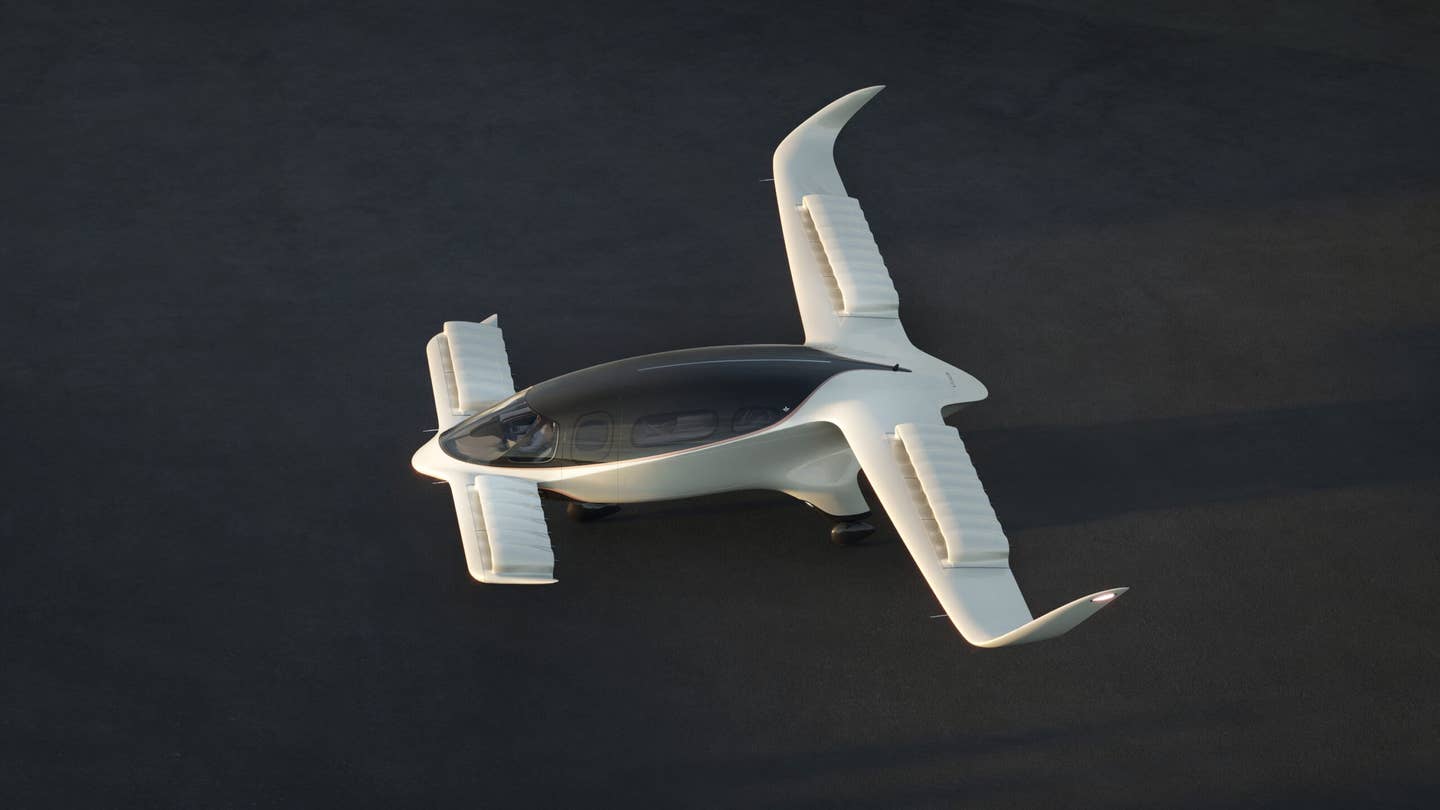Japan’s Denso and Honeywell Partner on Lilium eVTOL
Honeywell joins Japan-based automotive manufacturer Denso to develop a motor for Lilium’s electric vertical takeoff and landing (eVTOL) air taxi.

The seven-seat Lilium Jet is expected to enter service in 2025. [Courtesy: Lilium]
U.S.-based Honeywell (NASDAQ: HON) and Japan-based Denso have formally launched a partnership to develop a motor for Lilium’s (NASDAQ: LILM) electric vertical takeoff and landing (eVTOL) air taxi, currently undergoing flight testing in Spain.
The partnership, revealed Monday at the European Business Aviation Convention and Exhibition (EBACE 2022) in Geneva, Switzerland, comes three months after Lilium revealed it would reduce the number of ducted fan propulsors in its Lilium Jet eVTOL from 36 to 30.
The Honeywell-Denso electric motor design includes a rotor and stator weighing approximately 4 kg with an output of 100 kW, the companies said in a statement Monday. “The rotor and stator are uniquely designed to meet the small size and low weight necessary to achieve Lilium’s performance goals.”
Unlike several competitors with tilt-rotor designs, Lilium’s propulsion system uses a series of ducted fans embedded across the aircraft’s wings and forward canards.
In a post last week on Instagram, the German-based company said it has filed 37 new patent applications published by the European Patent Office for inventions spanning energy, propulsion, structures, interior, avionics, and custom electric systems.
In April, Lilium began uncrewed flight testing of its fifth-generation demonstrator Phoenix 2 at the ATLAS Flight Center in Villacarrillo, Spain.
Lilium is among hundreds of eVTOL startups aiming to create zero-emission passenger aircraft for short urban or regional flights.
Automotive Industry Roots
Denso, which boasts a long history of developing and manufacturing automobile components, says the partnership aligns with its goals to focus on broader goals surrounding sustainability and the reduction of carbon emissions.
All three companies have been working for nearly two years on developing the new motor, the statement said. It’s the first product developed by Honeywell and Denso since they formalized their alliance, and “it marks Denso’s entry into the aerospace market.”
Honeywell is a key investor in Lilium and is also developing Lilium Jet’s flight control systems and avionics.
Lilium Jet’s seven-seat production design includes an expected range between 40 and 200 km (22 and 108 nm) and expected maximum speeds up to 300 km/h (162 knots).
The company struck a provisional deal last year with Brazilian airline Azul to buy $1 billion in Lilium aircraft. Other partnerships include agreements with FlightSafety International and NetJets.
Lilium expects to achieve EASA type certification for the Lilium Jet sometime in 2025.

Subscribe to Our Newsletter
Get the latest FLYING stories delivered directly to your inbox






